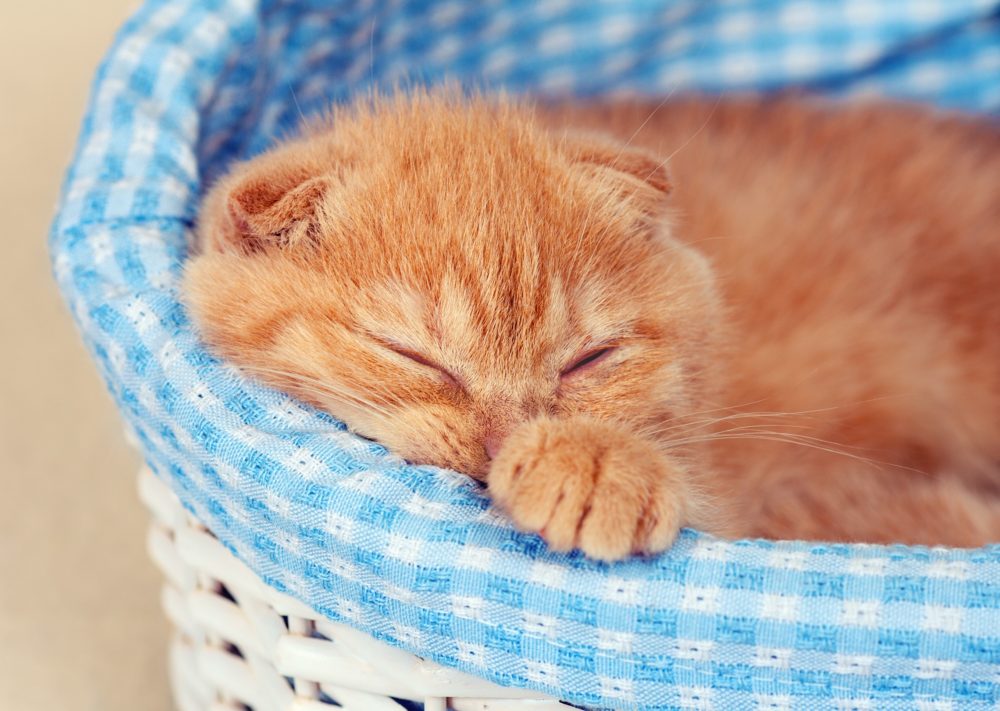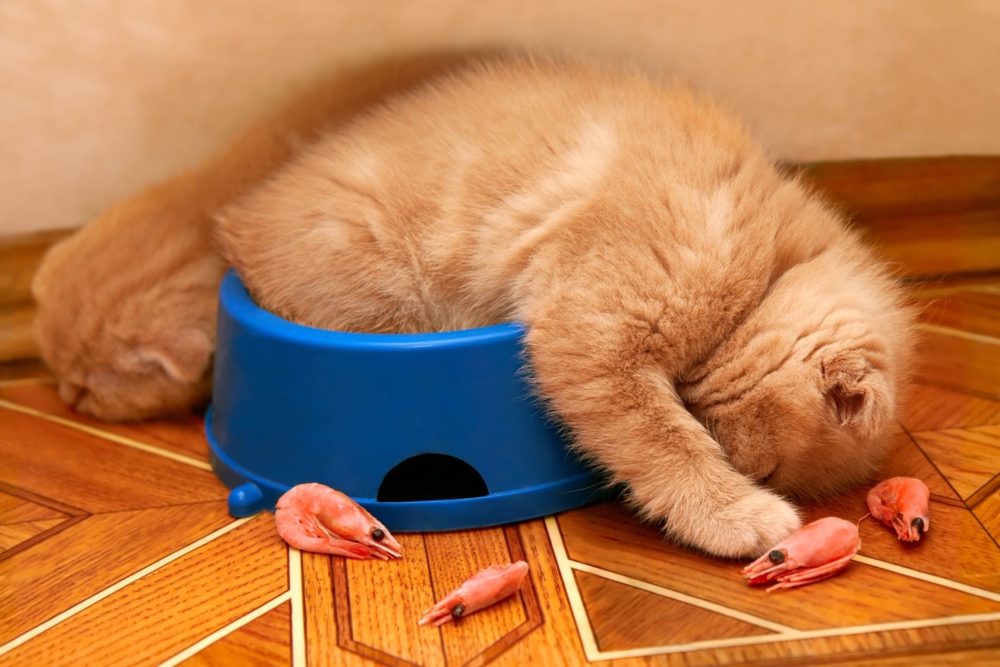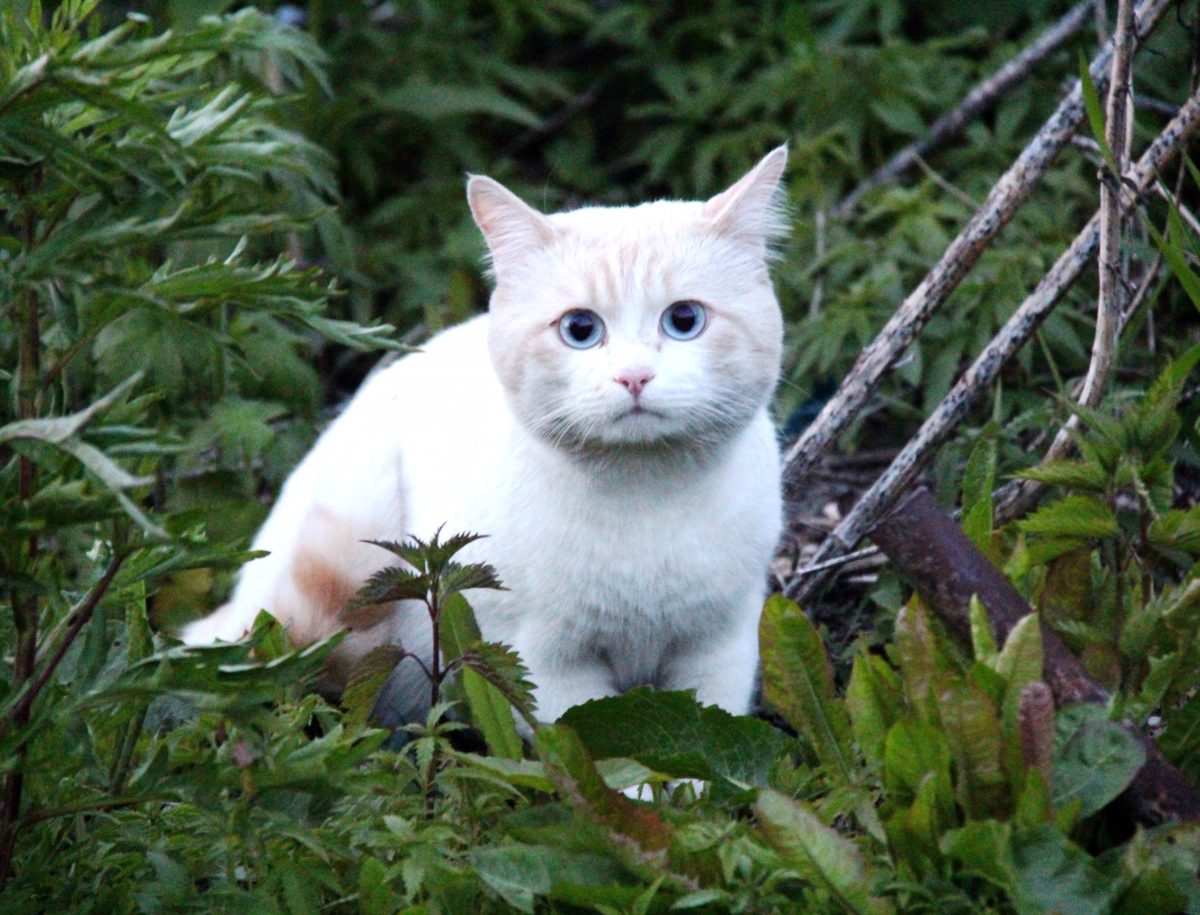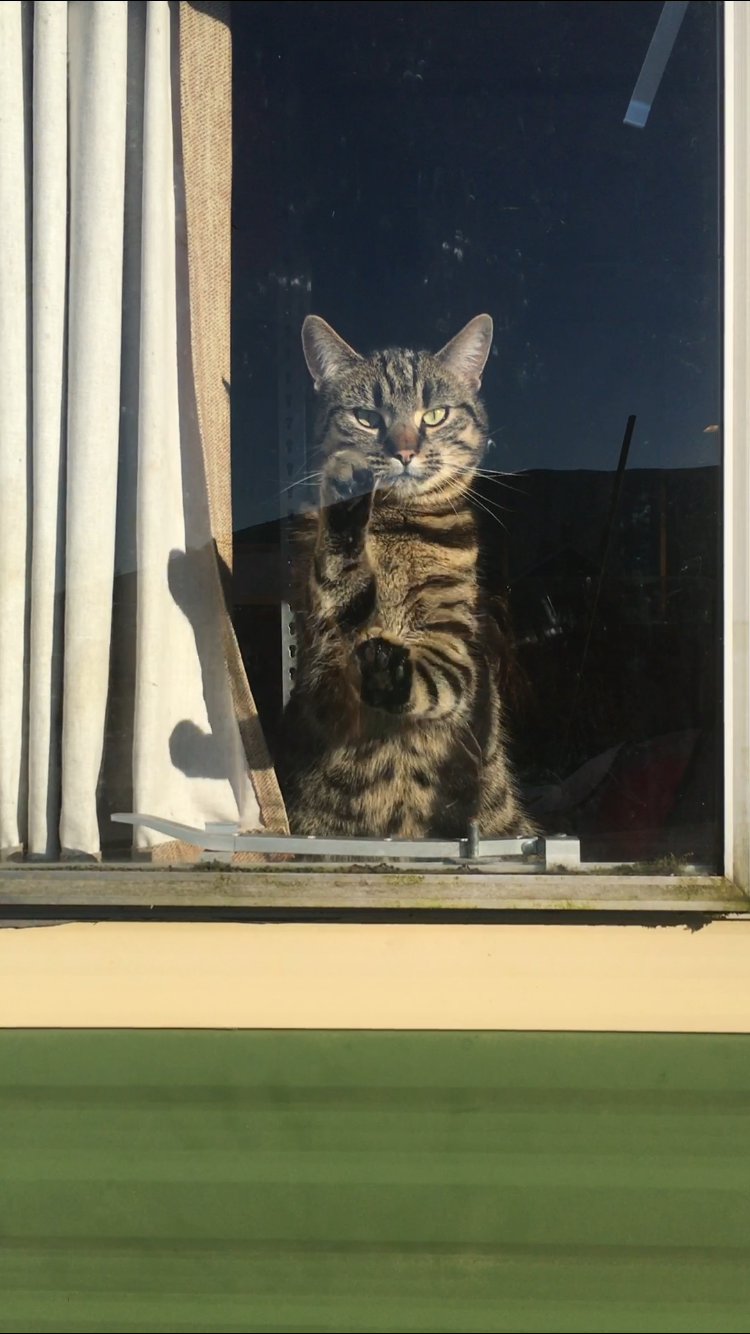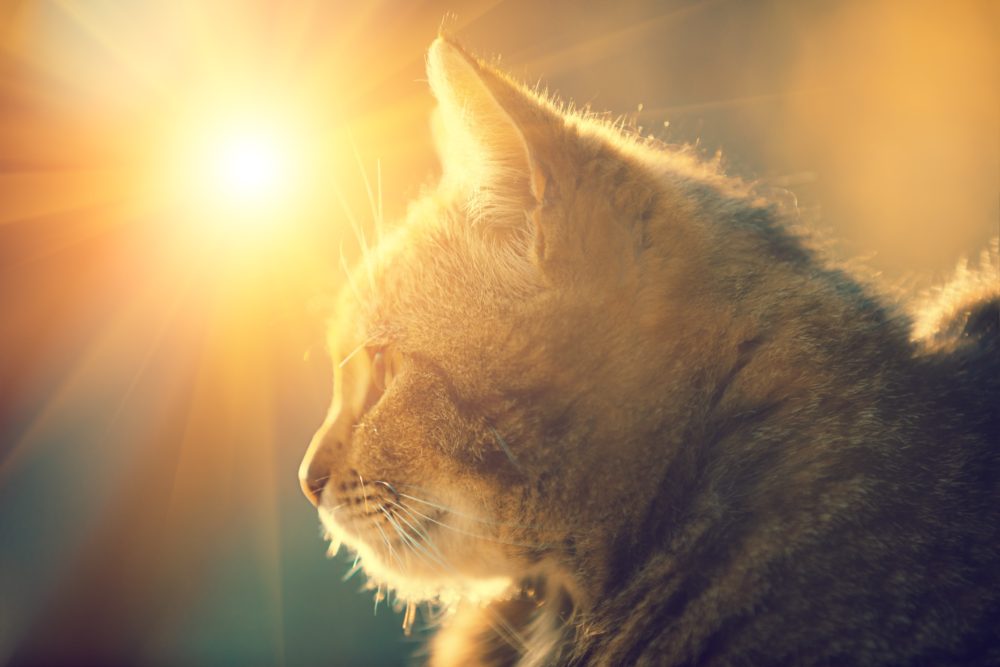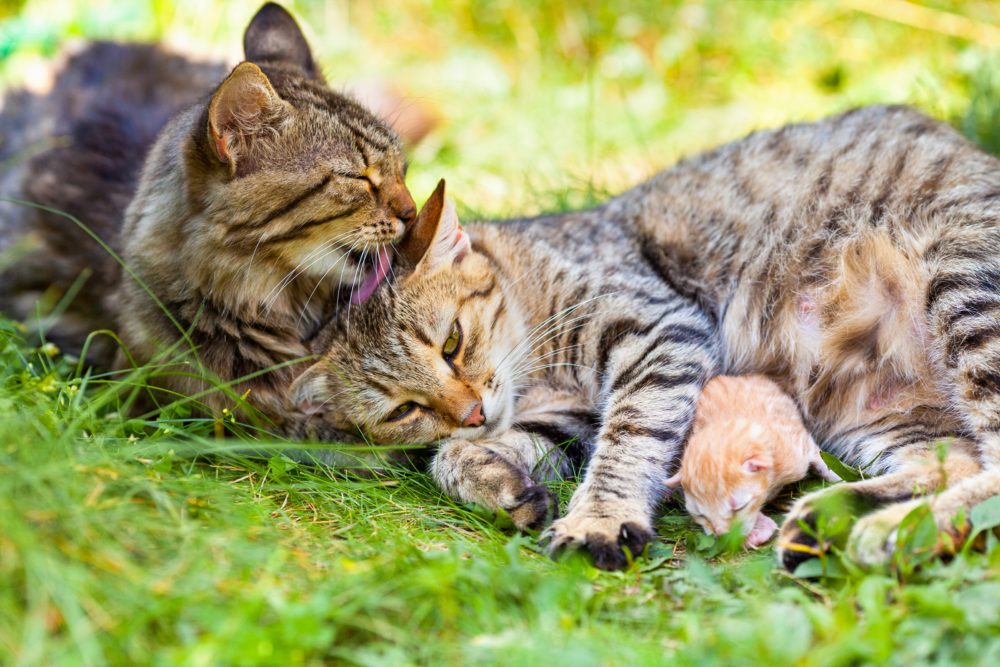
Why do cats nibble / lick each other’s ears?
We are always fascinated and intrigued by some of the behaviors and habits of our two cats, Misty and Bella-Boo. Misty is an outside cat during the day only, whilst Boo is an indoor cat. When Misty returns home from her morning stroll, Boo immediately goes to greet her. And how does she do this? She licks or gently nibbles Misty’s ears! This is a daily ritual and it’s always the ears. This greeting doesn’t seem to annoy or aggravate Misty in any way at all. She seems happy enough to let Boo continue her ritual whilst she sniffs out her daily treat after returning home. We decided to investigate this mode of greeting and see if this was indeed common in the cat world.
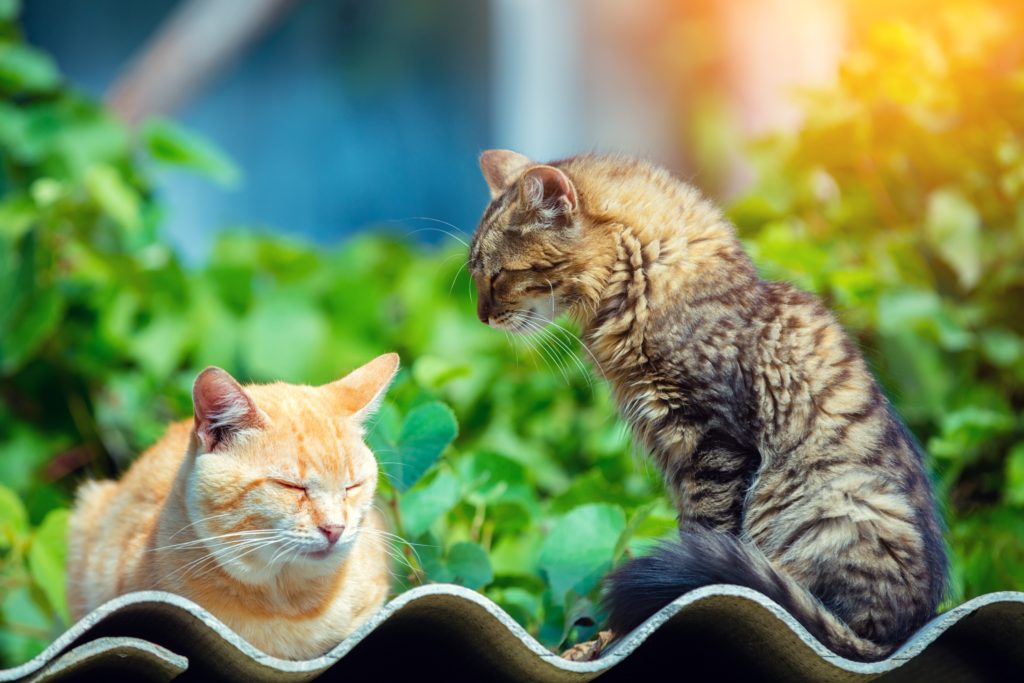
Why do cats nibble / lick each other’s ears?
Cats communicate in a variety of different way, including vocally, visually, in tactile ways and via scent. Tactile communication is closely linked with releasing and transferring scent markings. These tactile actions can include:
- licking
- touching noses
- kneading and scratching
- head bumping and check running; and
- biting.
And so, this greeting of licking and biting ears when one cat returns home, is a method of communication. A ‘welcome home, I’m glad you’re back’ greeting from one cat to another. Cats who know each other will lick each other as a sign of affection, or for bonding. This act of social grooming, also known as allogrooming, will happen when two cats completely love and trust each other. It keeps the bond they have together strong. They will only allow this to happen when they feel relaxed in each other’s company. When one cat licks another they transfer their aroma onto their fellow cat, strengthening and maintaining their bond further. These social grooming licks are usually focused on areas of the face, and particularly on the ears – a key area to display love and fondness.
Gentle biting, in the same way, is a sign of affection and playfulness. In our case, Boo is simply excited and pleased to see Misty return home after her daily adventures.
Other reasons why cats lick each other
Apart from social grooming as we’ve seen above, there are also other reasons as to why cats may lick each other. These include:
To bond with family members
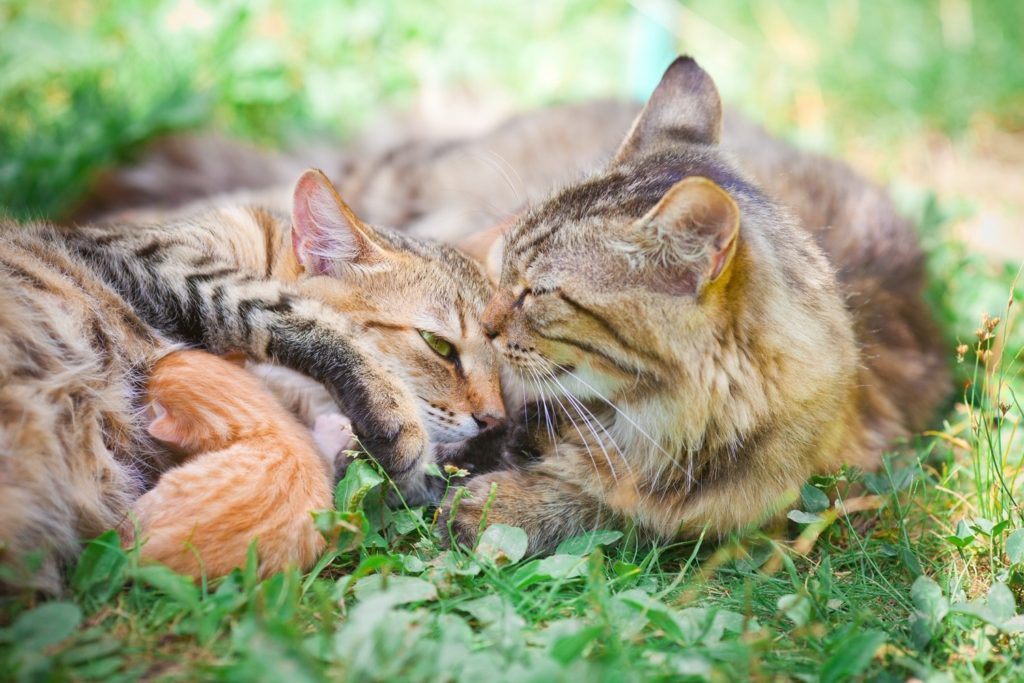 Licking or grooming each other will maintain and strengthen the bond amongst members of the same cat family. Apart from affection, the licking serves a purpose in maintaining the familiar scent of the family. This can also be seen amongst cats who are brought up together but who aren’t blood related. Communicating their scent on each other will identify each other as ‘family members’.
Licking or grooming each other will maintain and strengthen the bond amongst members of the same cat family. Apart from affection, the licking serves a purpose in maintaining the familiar scent of the family. This can also be seen amongst cats who are brought up together but who aren’t blood related. Communicating their scent on each other will identify each other as ‘family members’.
For protection and hierarchy
Introducing a new cat member to your family can be tricky at times. The existing cats may start sniffing and licking the new cat member. The unfamiliar smell of the new cat may cause some unsettling and the cats may be protective and wary. Licking the new cat will transfer their familiar aromas and is usually a positive sign of the acceptance of the new arrival. Grooming each other can also be a way of showing dominance and ranking in a multi cat household. Very often, although not always, the dominant cat will be the one to do the grooming.
Mutual grooming for hygiene and health
Cats are meticulous in keeping their fur clean and tidy. They can spend hours ensuring their coat is in a pristine condition. Detangling knots, removing dust and dirt picked up along the day, scrubbing up after a meal are all part of the grooming process. Sometimes a hard to reach area, or a stubborn knot may be tricky and having a feline friend at hand to help can be very useful.
Cats will also groom each other if they sense there is a problem or illness. For example, if one cat has a wound or a damaged part of the body, or indeed an illness, then another cat may lick the affected area. This may be to aid healing or to provide comfort.
Ensuring each and every member of the family is hygienic and well will benefit every member of the group.
A mother cat licking her young
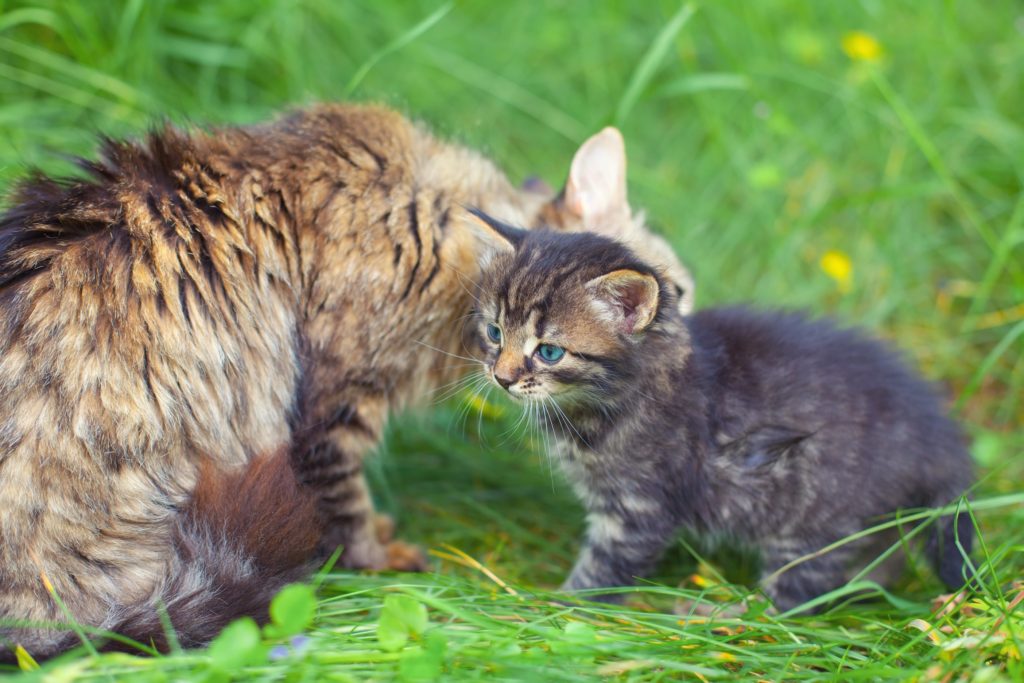 Licking her young kittens will take up a large proportion of a mother cat’s time and focus. This serves many purposes:
Licking her young kittens will take up a large proportion of a mother cat’s time and focus. This serves many purposes:
- the scent left on the young after licking helps identify the kittens as part of the family,
- this scent also let others know that the kittens belong to her family,
- to strengthen the bond between the mother and her young,
- to keep the young kittens clean and healthy.
Why do cats groom each other and then fight?
We have established so far that cats will only lick and groom each other when they feel happy and contended. If there is a genuine dislike towards each other, mutual grooming will not happen. Therefore, why after the loving, caring act of grooming each other can it suddenly turn into a fight? It can simply be a case of communicating – ‘that’s enough now, please stop’. If the other party fails to respond to the initial signs to stop the grooming, then the frustration and aggression may be hiked up a little to ensure the message is well and truly communicated.
It can sometimes be difficult to distinguish between playing and fighting. Chasing, rolling around and pawing each other can just be rough playtime. There will not be any vocal discomfort and once the play is over then both cats will be back to their calm, happy selves. A real fight will involve hissing, aggressive noises and actions, and be distressing. This fight should be broken up, and the cats separated.
It has been known, although it is not very common, that if cats discover a wound or illness whilst grooming a fellow cat, then they can become less friendly and less attentive. It can even result in some aggression. Always consult the advice of your veterinary if you have any concerns with your cat’s health or behaviour.
Why do cats lick humans?
To display love and affection
We’ve seen above that cats will lick each other to identify themselves as family members, even though they may not be blood related. When your cat engages in licking you, they may well be seeing you as a member of their family. Cats will often push and turn their heads into our hands – eagerly awaiting us to rub under their chin, behind their ears and down the back of their heads. These spots will have your cat purring with delight. Take ten to twenty minutes each day to stroke and give fuss to your cat. Not only will your cat be happy, but it will also benefit you. Check out our article ‘The energetic power of cats’ to discover more about the mutual benefit you and your cat can provide each other.
Because you are tasty!
As strange as this may seem, some cats like the taste of their owners! The natural oils of the human skin is simply too tempting for some cats! Please be careful if you have applied any creams or lotions on your skin, they may be toxic to your cat.
For comfort
Cats will groom for relaxation and to relieve stress or anxiety. Sometimes cats will lick their human carers as a way of relaxing themselves.
If you notice any changes in your cat’s behaviour or have any concerns, please do not hesitate to contact your veterinary for advice.
Other articles you may find of interest
Do I need to brush / groom my cat? An introductory guide
